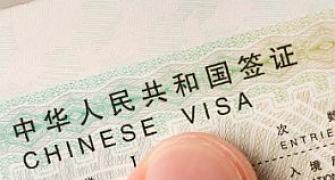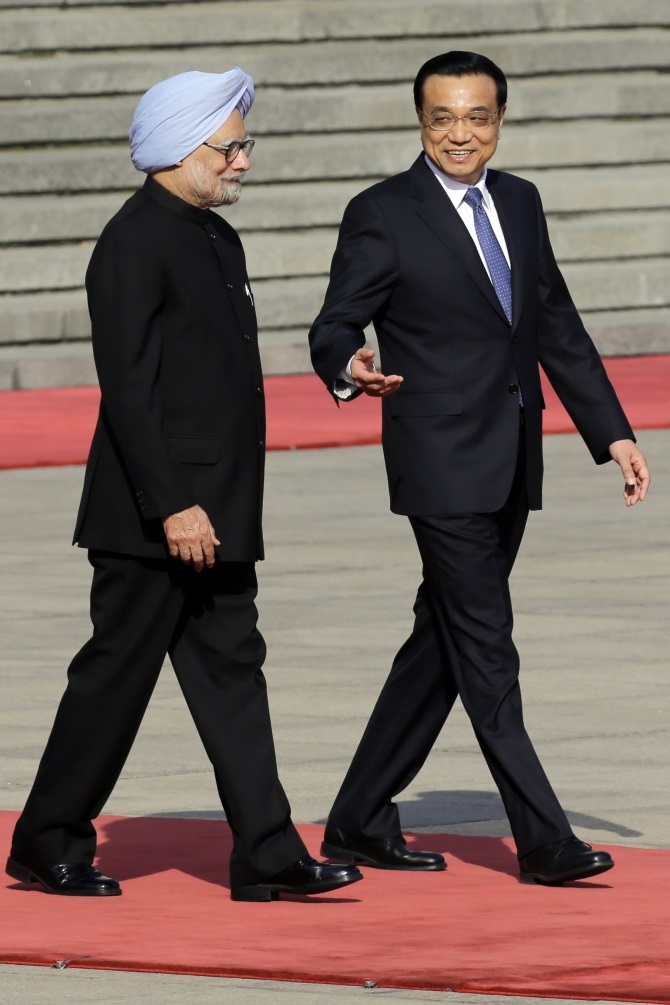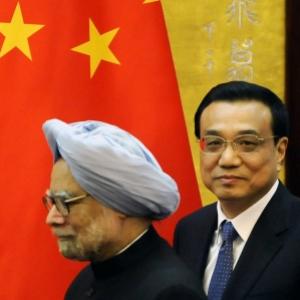 The Border Defence Cooperation Agreement inked between India and China on Wednesday facilitates establishment of a hotline between the military headquarters of the two countries, besides border personnel meeting sites in all sectors receiving broad directive not to tail each others' patrols along the disputed borders.
The Border Defence Cooperation Agreement inked between India and China on Wednesday facilitates establishment of a hotline between the military headquarters of the two countries, besides border personnel meeting sites in all sectors receiving broad directive not to tail each others' patrols along the disputed borders.
The BDCA, the outcome of a series of talks following diplomatic tensions arising out of the Chinese troops pitching their tents at Depsang Valley in Ladakh in April, says that the two sides may consider establishing a hotline between the military headquarters to facilitate communication at the highest level of the two militaries in times of crisis. The two countries already have hotlines between the two Prime Ministers Offices.
The BDCA, signed after Prime Minister Manmohan Singh held talks with his Chinese counterpart Li Keqiang, also says the two sides have agreed not to follow or tail patrols of the other side where there is no common understanding of the Line of Actual Control.
The aggressive patrolling often resulted in tensions. It also says that in case a doubtful situation at the border arises either side has a right to seek a clarification from the other side. It also stipulates that the two countries agree that if border defence forces of the two sides come to a face-to-face situation in areas of no common understanding, both sides exercise maximum self-restraint, refrain from any provocative action and not to use force or threaten to use force against either side, treat each other with courtesy and prevent exchange of fire or armed conflict.
The BDCA, which outlined a series of procedures to be followed by two countries along the about 4000 km long border, pending the settlement of the dispute facilitate exchange of information about military exercises, aircrafts, demolition operations and unmarked mines and take consequent measures conducive to the maintenance of peace, stability and tranquility along the LAC.
Also the two sides agreed to jointly combat smuggling of arms, wildlife, wildlife articles and other contrabands besides assisting each other in locating personnel, livestock, means of transport and aerial vehicles that may have crossed or possibly in the process of crossing the LAC.
Each side would work with the other one in combating natural disasters or infectious diseases that may affect or spread to the other side. The pact will be implemented through flag meetings of the border personnel, periodic meetings.
Explaining the salient features of the pact, Indian Ambassador to China S Jaishankar told the media in Beijing that the agreement does not hinder the development of infrastructure on the Indian side of the border.
India has undertaken a host of infrastructural development projects along several points of the border, which included building roads and airports to match a lot of development already accomplished by China on most part of the key areas along the LAC.
The agreement says that the two sides also agreed to enhance understanding, cooperation between the forces with each side inviting the other for joint celebrations, national, military days and festivals. The two sides may also conduct joint military training exercises at army level in each other country on regular basis.










